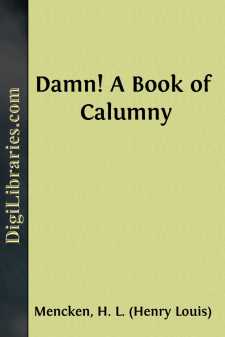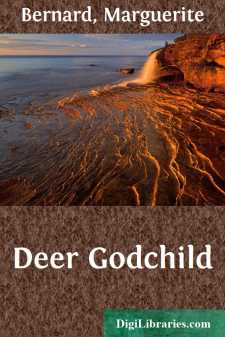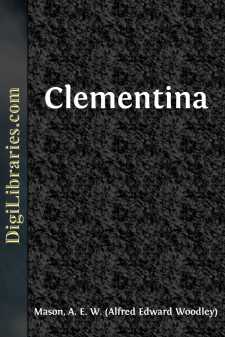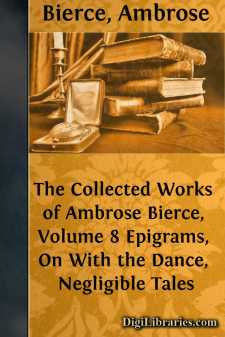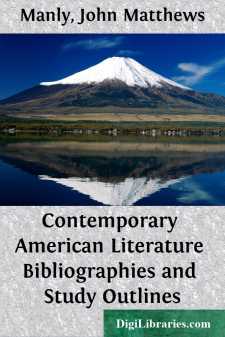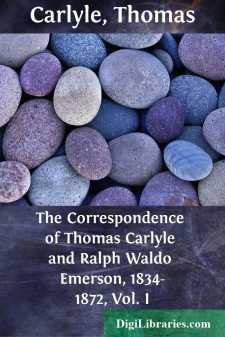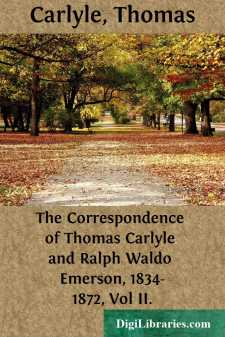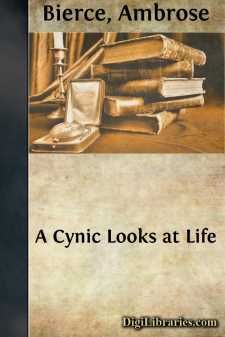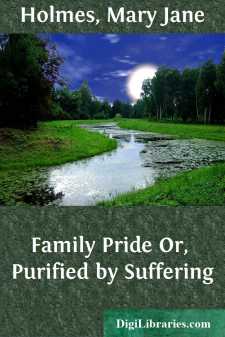Literary Collections
- American 84
- Ancient, Classical & Medieval 14
- Asian 1
- Australian & Oceanian 1
- Canadian 55
- Continental European 121
- English, Irish, Scottish, Welsh 179
- Essays 160
- General 24
- Letters 46
- Middle Eastern 1
Literary Collections Books
Sort by:
PATER PATRIÆ If George Washington were alive today, what a shining mark he would be for the whole camorra of uplifters, forward-lookers and professional patriots! He was the Rockefeller of his time, the richest man in the United States, a promoter of stock companies, a land-grabber, an exploiter of mines and timber. He was a bitter opponent of foreign alliances, and denounced their evils in harsh,...
more...
INTRODUCTION A young New-Yorker of twelve lately heard an appeal for the Fatherless Children of France, and his heart was touched. He had no money, but he resolved to give his spare time and his utmost energy to support a "kid in France." The French child needed ten cents worth of extra food each day, in order to grow up with strength and courage. The little American godfather earned those...
more...
CHAPTER I The landlord, the lady, and Mr. Charles Wogan were all three, it seemed, in luck's way that September morning of the year 1719. Wogan was not surprised, his luck for the moment was altogether in, so that even when his horse stumbled and went lame at a desolate part of the road from Florence to Bologna, he had no doubt but that somehow fortune would serve him. His horse stepped gingerly...
more...
by:
Ambrose Bierce
My name is John Brenwalter. My father, a drunkard, had a patent for an invention, for making coffee-berries out of clay; but he was an honest man and would not himself engage in the manufacture. He was, therefore, only moderately wealthy, his royalties from his really valuable invention bringing him hardly enough to pay his expenses of litigation with rogues guilty of infringement. So I lacked many...
more...
HOW TO USE THIS BOOK This book is intended as a companion volume to Contemporary British Literature; but the differences between conditions in America and in England have made it necessary to alter somewhat the original plan. In America today we have a few excellent writers who challenge comparison with the best of present-day England. We have many more who have been widely successful in the business...
more...
CONVERSATIONS PARIS, 1851-2. [The coup d'état took place on the 2nd, and Mr. Senior reached Paris on the 21st of December.—ED.] Paris, December 23, 1851.—I dined with Mrs. Grot and drank tea with the Tocquevilles. [1]'This,' said Tocqueville, 'is a new phase in our history. Every previous revolution has been made by a political party. This is the first time that the army has...
more...
by:
Thomas Carlyle
I. Emerson to Carlyle Boston, Massachusetts, 14 May, 1884 My Dear Sir,—There are some purposes we delay long to execute simply because we have them more at heart than others, and such an one has been for many weeks, I may say months, my design of writing you an epistle. Some chance wind of Fame blew your name to me, perhaps two years ago, as the author of papers which I had already distinguished (as...
more...
by:
Thomas Carlyle
CORRESPONDENCE OF CARLYLE AND EMERSON LXXVI. Emerson to Carlyle Concord, 1 July, 1842 My Dear Carlyle,—I have lately received from our slow friends, James Munroe & Co., $246 on account of their sales of the Miscellanies,—and I enclose a bill of Exchange for L51, which cost $246.50. It is a long time since I sent you any sketch of the account itself, and indeed a long time since it was posted,...
more...
by:
Ambrose Bierce
I The question "Does civilization civilize?" is a fine example of petitio principii, and decides itself in the affirmative; for civilization must needs do that from the doing of which it has its name. But it is not necessary to suppose that he who propounds is either unconscious of his lapse in logic or desirous of digging a pitfall for the feet of those who discuss; I take it he simply wishes...
more...
by:
Mary Jane Holmes
THE FARMHOUSE AT SILVERTON. Uncle Ephraim Barlow, deacon of the orthodox church in Silverton, Massachusetts, was an old-fashioned man, clinging to the old-time customs of his fathers, and looking with but little toleration upon what he termed the "new-fangled notions" of the present generation. Born and reared amid the rocks and hills of the Bay State, his nature partook largely of the nature...
more...


